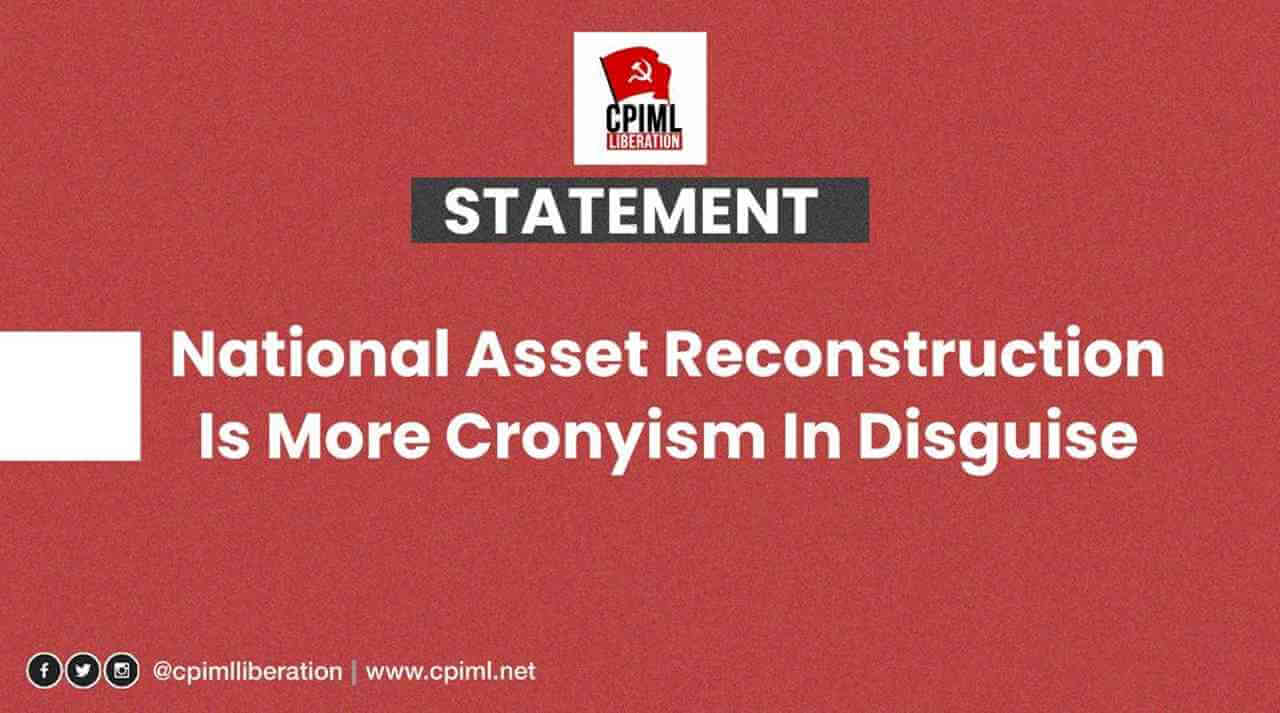National Asset Reconstruction Is More Cronyism In Disguise

16 September 2021
The Cabinet decision to approve Central Government guarantee of up to Rs 30,600 crore to back security receipts issued by the National Asset Reconstruction Company Limited (NARCL) as part of the resolution of bad loans, is another attempt to disguise its policy of cronyism and drain on depositors’ and tax-payers’ money to mislead people.
The Government has been claiming that for ‘cleaning up’ balance sheets of banks, a “Four R Strategy” of “Recognition, Resolution, Recapitalization and Reforms” is being implemented. The Finance Minister also claimed that in last six financial years as part of this plan, banks have recovered Rs 5,01,479 Crore. What the government is silent about is the fact that in the same period of six years, a whopping Rs 18,28,584 crore has been added as Gross NPAs and Rs 6,83,388 Crore has been written-off as bad loans. Far from “fast recovery” of loans, then, what we have is a policy of fast write-offs. Moreover, more than Rs 3,00,000 Crore has been spent from the public exchequer for capital infusion during this period. If we add up the amounts of ‘annual additions’ to Gross NPAs, ‘write-offs’ and ‘recapitalizations’, during first six years of Modi rule, the drain on depositors’ and tax-payers’ money stands at a whopping 28 lakh crore. This is around 14% of our GDP!
What kind of credit culture is the government fostering by signaling to borrowers that they can continue to default with impunity, confident that the government will force the public to bear the cost of their defaulted loans? Remember, ordinary farmers, women and the poor who default on small loans are subjected to public humiliation and harassment - while the super-rich defaulters have their identity protected and the public forced to bear the cost of their defaults.
The beneficiaries of these write-offs are likely to be favourite cronies of the Government or unscrupulous borrowers whose identity the Government is hiding. But it is clear that it is ordinary depositors of these banks and ordinary taxpayers who foot the bill when capital has to be infused in these banks to ensure capital adequacy as per international Basel norms.
If one accepts for the sake of the argument that the Government’s real intent of ‘cleaning up’ balance sheets of the banks by using public money is ultimately for the public good by correcting past bad lending, then why does the Government not clearly state that they will not, as many fear, privatise the PSBs after the ongoing mergers? Without such a clear statement, it is valid to suspect that the real intent behind cleaning up balance sheets is to sell off these banks with a “clean slate” to favourite cronies of the Government.
Further, the decision of the Government to give a guarantee of Rs 30,600 crore to back security receipts issued by the NARCL is a cronyist policy using an off-balance sheet mechanism since these guarantees remain as “below the line” items in the budget not impacting the fiscal deficit number.
On the face of it, the Asset Reconstruction Companies (ARCs) owned by private financial capital tend to buy ‘bad loans’ of banks to ‘clean up’ their balance sheets. But in essence, this is a purchase at dirt cheap rate. The cost of these would thus fall on banks (whose bad loans are being bought) and ultimately on ordinary depositors. With the Government going out of way to give a ‘sovereign guarantee’ even for security receipts issued by ARCs, its again the public exchequer which will bear the cost in case of defaults.
- CPIML Central Committee
Charu Bhawan, U-90, Shakarpur, Delhi 110092
Phone: +91-11-42785864 | +91 9717274961 E-mail: info@cpiml.org

